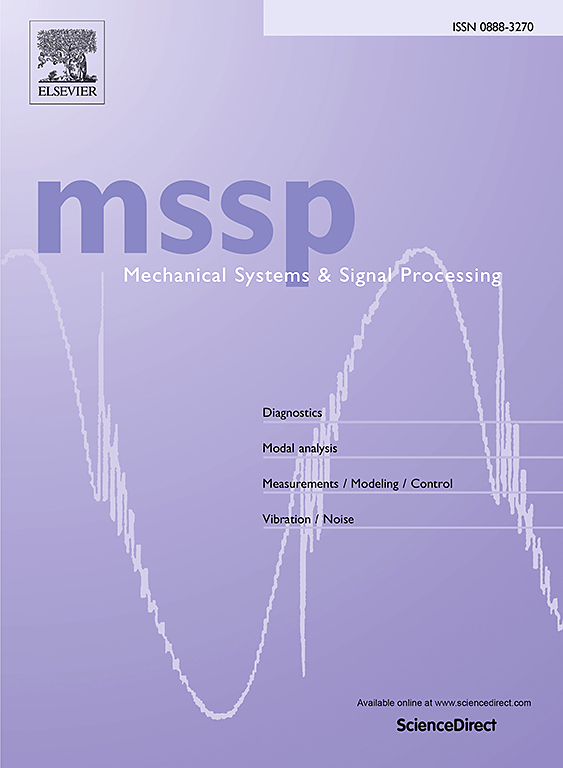基于 LLM 的轴承故障诊断框架
IF 7.9
1区 工程技术
Q1 ENGINEERING, MECHANICAL
引用次数: 0
摘要
准确诊断轴承故障对于保持旋转机械的高效运行至关重要。然而,由于应用环境的多样化,传统诊断方法面临着各种挑战,包括跨条件适应性、小样本学习困难和跨数据集泛化。这些挑战阻碍了现有方法的有效性并限制了其应用。大型语言模型(LLM)为提高诊断模型的泛化能力提供了新的可能性。然而,如何将 LLM 与传统诊断技术相结合以实现最佳泛化仍未得到充分探索。本文提出了一种基于 LLM 的轴承故障诊断框架来应对这些挑战。首先,本文提出了一种信号特征量化方法来解决从振动数据中提取语义信息的问题,该方法基于统计分析框架,整合了时域和频域特征提取。该方法将时间序列数据文本化,旨在通过简明的特征选择高效地学习跨条件和小样本的共同特征。该方法采用了基于 LoRA 和 QLoRA 的微调方法,以增强 LLM 在分析振动数据特征时的泛化能力。此外,还通过完整数据和有限数据的单数据集交叉条件实验和跨数据集转移实验验证了这两项创新(振动特征文本化和预训练模型微调)。结果表明,所提出的框架能够同时执行三种类型的泛化任务。经过训练的跨数据集模型的准确率提高了约 10%,证明了 LLM 对输入模式的适应性。最终,研究结果有效提高了泛化能力,填补了将 LLMs 用于轴承故障诊断的研究空白。本文章由计算机程序翻译,如有差异,请以英文原文为准。
LLM-based framework for bearing fault diagnosis
Accurately diagnosing bearing faults is crucial for maintaining the efficient operation of rotating machinery. However, traditional diagnosis methods face challenges due to the diversification of application environments, including cross-condition adaptability, small-sample learning difficulties, and cross-dataset generalization. These challenges have hindered the effectiveness and limited the application of existing approaches. Large language models (LLMs) offer new possibilities for improving the generalization of diagnosis models. However, the integration of LLMs with traditional diagnosis techniques for optimal generalization remains underexplored. This paper proposed an LLM-based bearing fault diagnosis framework to tackle these challenges. First, a signal feature quantification method was put forward to address the issue of extracting semantic information from vibration data, which integrated time and frequency domain feature extraction based on a statistical analysis framework. This method textualized time-series data, aiming to efficiently learn cross-condition and small-sample common features through concise feature selection. Fine-tuning methods based on LoRA and QLoRA were employed to enhance the generalization capability of LLMs in analyzing vibration data features. In addition, the two innovations (textualizing vibration features and fine-tuning pre-trained models) were validated by single-dataset cross-condition and cross-dataset transfer experiment with complete and limited data. The results demonstrated the ability of the proposed framework to perform three types of generalization tasks simultaneously. Trained cross-dataset models got approximately a 10% improvement in accuracy, proving the adaptability of LLMs to input patterns. Ultimately, the results effectively enhance the generalization capability and fill the research gap in using LLMs for bearing fault diagnosis.
求助全文
通过发布文献求助,成功后即可免费获取论文全文。
去求助
来源期刊

Mechanical Systems and Signal Processing
工程技术-工程:机械
CiteScore
14.80
自引率
13.10%
发文量
1183
审稿时长
5.4 months
期刊介绍:
Journal Name: Mechanical Systems and Signal Processing (MSSP)
Interdisciplinary Focus:
Mechanical, Aerospace, and Civil Engineering
Purpose:Reporting scientific advancements of the highest quality
Arising from new techniques in sensing, instrumentation, signal processing, modelling, and control of dynamic systems
 求助内容:
求助内容: 应助结果提醒方式:
应助结果提醒方式:


